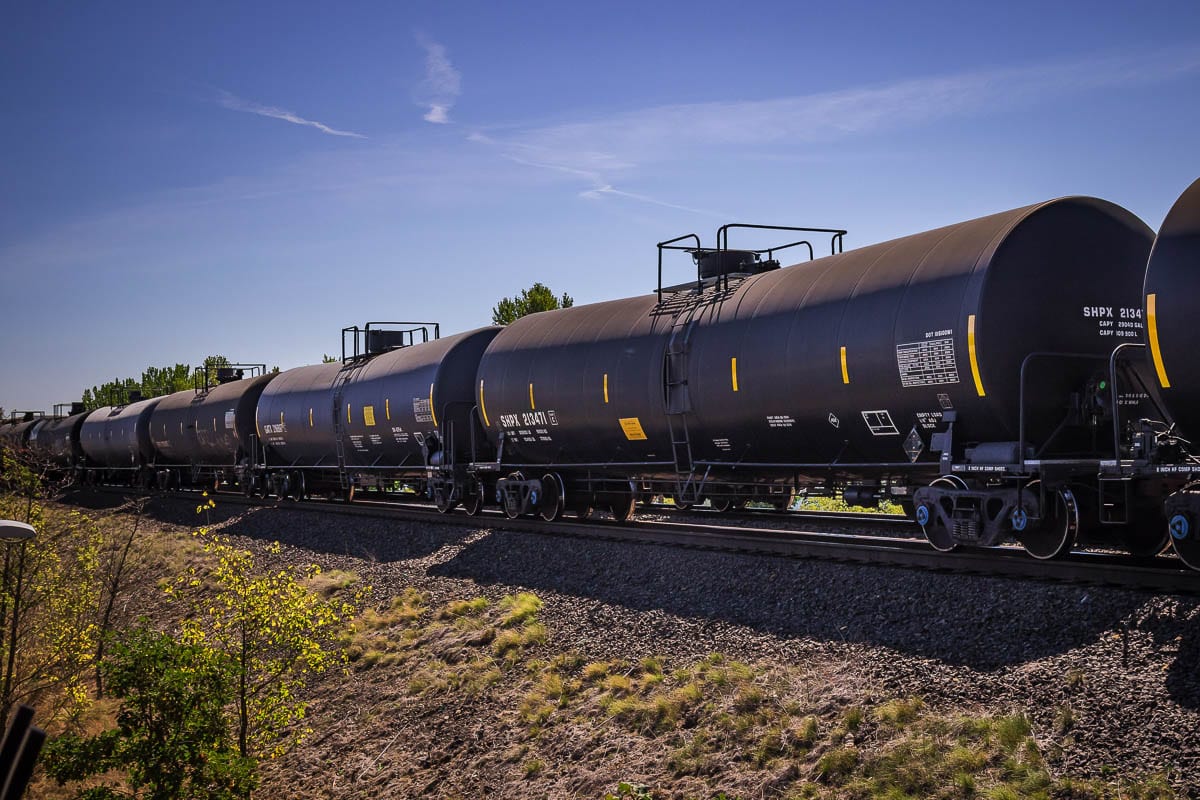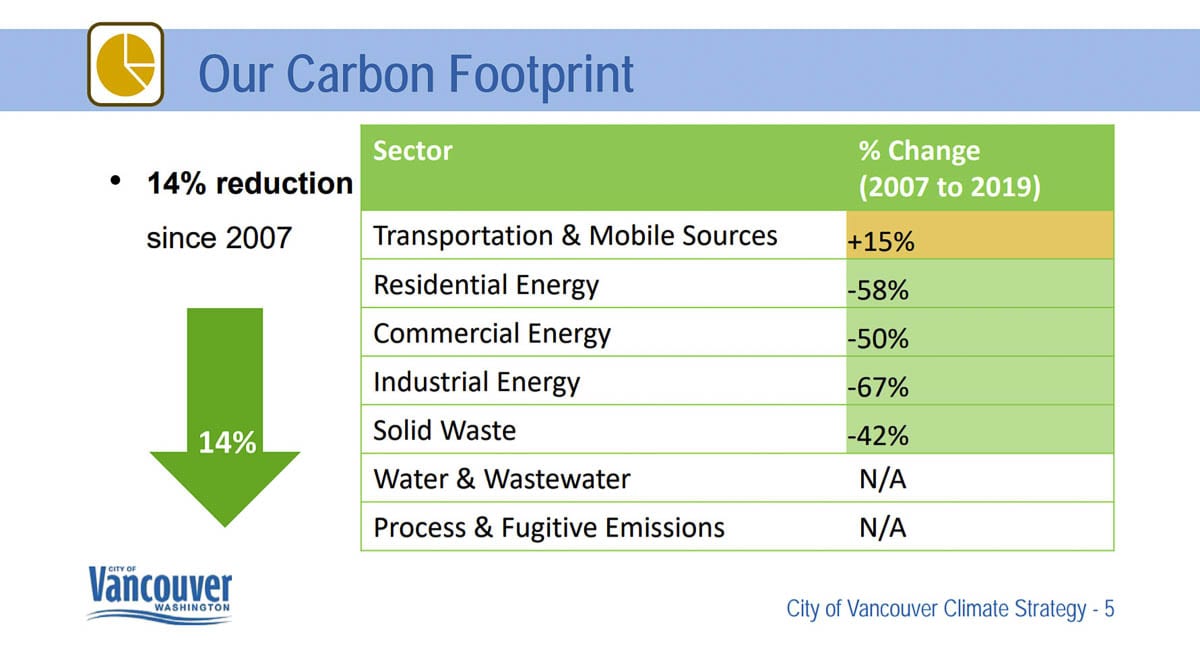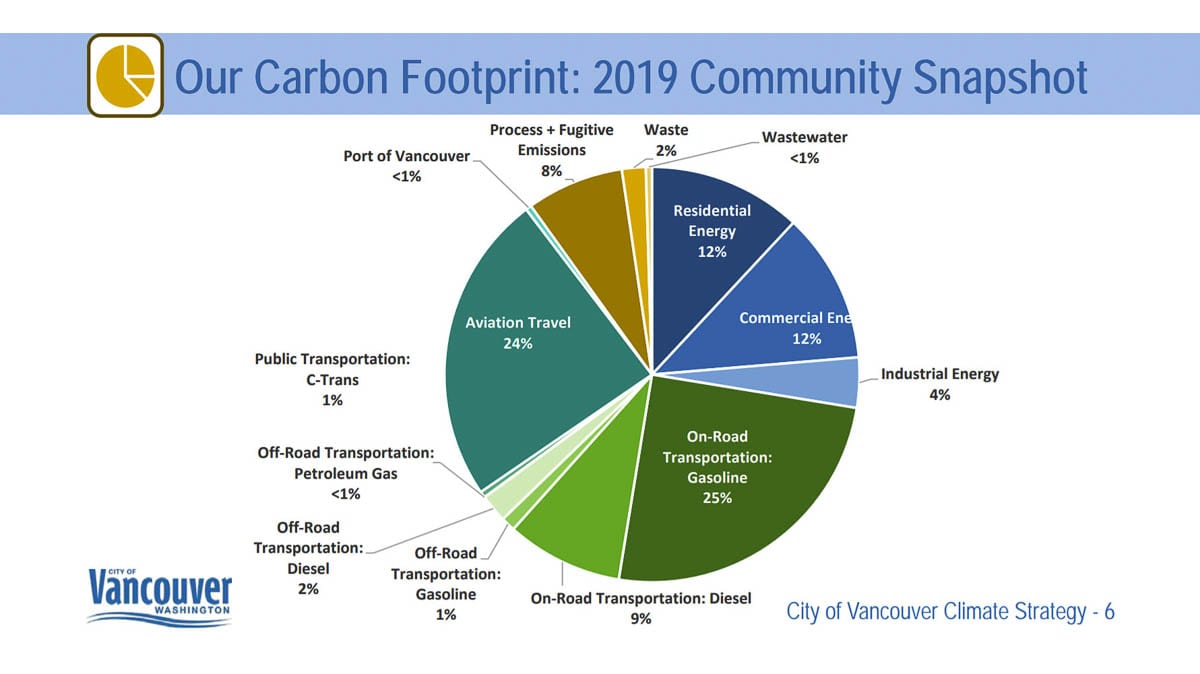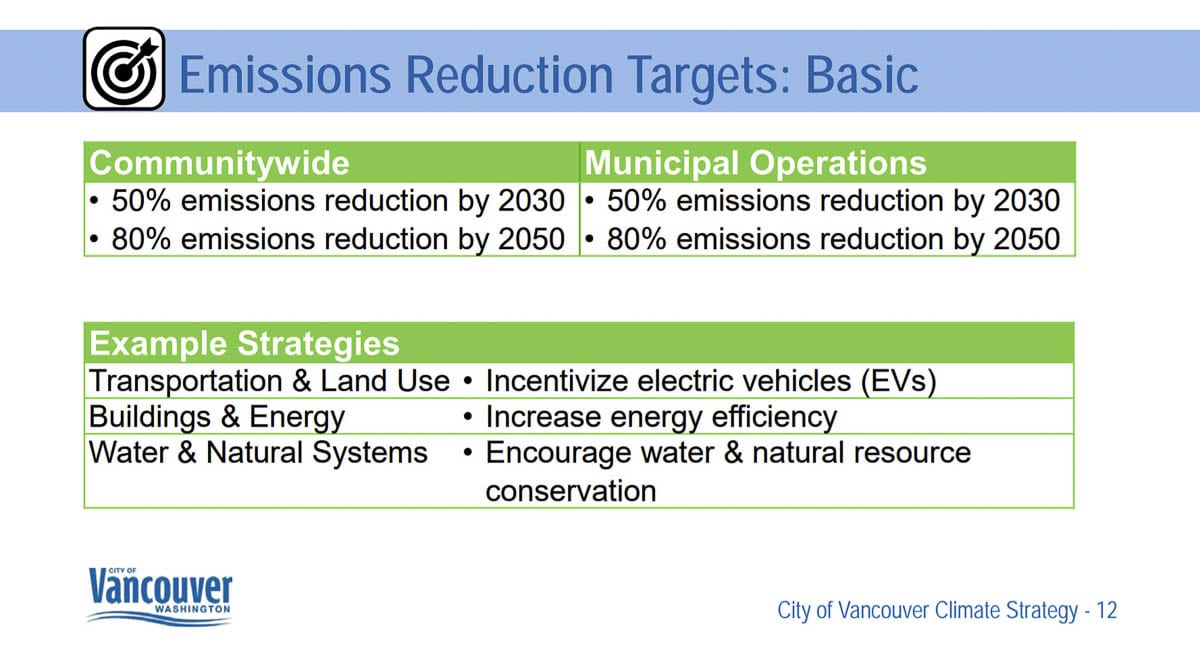The adoption of a climate action plan set for next year would be the first since 2007
VANCOUVER — Climate change is set to be a big topic for members of the Vancouver City Council in 2021.
During a Monday work session, the councilors heard an update from Cascadia Consulting Group, which the city hired to conduct the first major emissions audit in more than 12 years.

It’s the first step in what Councilor Laurie Lebowsky called “one of the most consequential projects we may see at the city, for the future.”
“The overall goal of this process is to provide a pathway to a resilient, low carbon future that sustains a high quality of life for residents and businesses,” said P.J. Tillmann a senior associate with Cascadia. “We’ve designed the targets to be aligned with the state direction, best available science and to guide your future efforts.”
Those efforts could include the adoption of a new emission reduction strategy.
The city’s previous climate goal, set in 2007, was relatively simple, calling only for a yearly reduction in greenhouse gas emissions.
The report found Vancouver’s overall carbon footprint has declined by approximately 14 percent since 2007, though it was unclear if that met the city’s climate goals, since annual energy audits have not been conducted.

Cascadia Associate Tristan Smit said their research showed major reductions in emissions across nearly all sectors, except for transportation, which saw a 15 percent carbon footprint increase.
Transportation makes up around 60 percent of the overall carbon footprint of the city, said Smit, with 40 percent of that attributed to passenger traffic, 14 percent to commercial vehicles, and 39 percent to air travel, mostly through Portland International Airport.
Public transportation, including C-TRAN, accounted for just 1 percent of carbon emissions, a trend that was largely aligned with other northwest cities “where most emissions are coming from the transportation and built environment sections,” said Smit.
Buildings and energy usage accounted for a quarter of the carbon footprint, according to the report, with residential electricity making up 24 percent of that, and 20 percent in residential natural gas. Commercial and industrial energy usage made up the other 56 percent.

Smit also noted that, while city-owned properties and vehicles only accounted for a small percentage of the overall carbon footprint, municipal emissions also represent the easiest sector for the city to address.
Vancouver is already well underway on a project to replace all street lights with more energy-efficient LEDs, and could look to begin replacing city-owned vehicles with electric vehicles.
Next steps
The report presented on Monday is the first step in a process that could allow the City Council to provide a framework, including four options for how to move forward.
“Each target is more aggressive than the last,” she told the council.
Councilor Ty Stober said he would prefer that the city be as aggressive as possible in seeking to mitigate climate change, an emerging concern gaining traction across the west coast.
“Start high and then let’s work backwards,” said Stober, “rather than starting at the basis and working up.”
The basic option would aim for 80 percent emissions reductions by 2050. That would be accomplished largely by incentivizing the use of electric vehicles, increased energy efficiency standards, and encouraging conservation of natural resources.
Tillmann noted that Bellevue, Redmond, and Everett had adopted that goal, “however, they’re likely to revise that target because of the new science to be a bit more aggressive.”
The most aggressive strategy aims for 80 percent emissions reduction within a decade, with full carbon neutrality or even positivity by 2040 for the city, and 2045 for the city as a whole.

Accomplishing that, Tillmann said, would require aggressively incentivizing alternate transportation and electric vehicle adoption, investing in large-scale renewable energy that could be stored, and planting more trees while adopting carbon storage technologies.
“Judging from your past performance of achieving 14 percent emissions reduction despite 16 percent population growth,” said Tillmann, “it suggests that these targets may actually be pretty feasible for Vancouver.”
Still, added Smit, the area could see some stiff headwinds when it comes to achieving those goals.
“We did some modeling and … Vancouver is expected to see a 72 percent increase in population,” he said, “which will drive a 34 percent increase in jobs and approximately a 49 percent increase in housing by 2050.”
While such rapid growth could present challenges, it also represents an opportunity to shape future growth with an eye towards achieving environmental goals.
“Despite projected population and economic growth in Vancouver, there still will be an anticipated net decrease of emissions from these state and federal policies,” added Smit, “as well as continual federal vehicle fuel economy standards.”
While all of the councilors who spoke out during the work session said they were generally supportive of taking decisive action on a plan to address climate concerns, several noted that the aggressive goals would require significant help from outside of the city.
“It may require more assistance from other public agencies than assessed initially in what we have seen,” said Councilor Bart Hansen. “And there may be unintended consequences that can come from what we’re trying to achieve.”
Stober also noted that the law currently prohibits Clark Public Utilities from providing incentives for fuel switching, such as replacing a natural gas water heater with a heat pump model.
“And so, if that was something we want to do, then we would have to come up with a way to provide that incentive,” he said, “or we would have to be lobbying.”
The council will get another look at the climate plan on Dec. 14, noted City Manager Eric Holmes.
“And the intent is to bring back for counsel whatever information you may need to support your deliberations about choosing a target,” said Holmes, “because the target is really what drives the balance of our work.”
Holmes said he would have staff work up an inventory of the city’s current vehicle fleet, along with further information about how the COVID-19 pandemic might impact efforts to pursue a climate action plan.
Work on the climate action plan is expected to continue through March, with another workshop in May.
Bulk fossil fuel facility moratorium extended
The climate plan work session came on the same night City Council took a step to further extend a moratorium on bulk fossil fuel facilities for another six month.
“What an accomplishment it would be to protect ourselves and future generations from the toxic, dangerous projects the oil and gas industry is constantly proposing here on the ‘thin green line,’” said Vancouver artist and climate activist Heidi Cody, speaking in support of an eventual permanent ban. “A lot of folks worry that climate action is going to cost them personally or be too expensive. Nothing will cost more than climate catastrophe.”
Cody was one of around a dozen people who spoke up in support of the moratorium and an eventual full ban on new fossil fuel facilities inside the city.
Council approved first reading of the moratorium extension on Monday, setting a second reading, public hearing, and final vote for the council’s Dec. 7 meeting, the same day the existing moratorium is set to expire.




